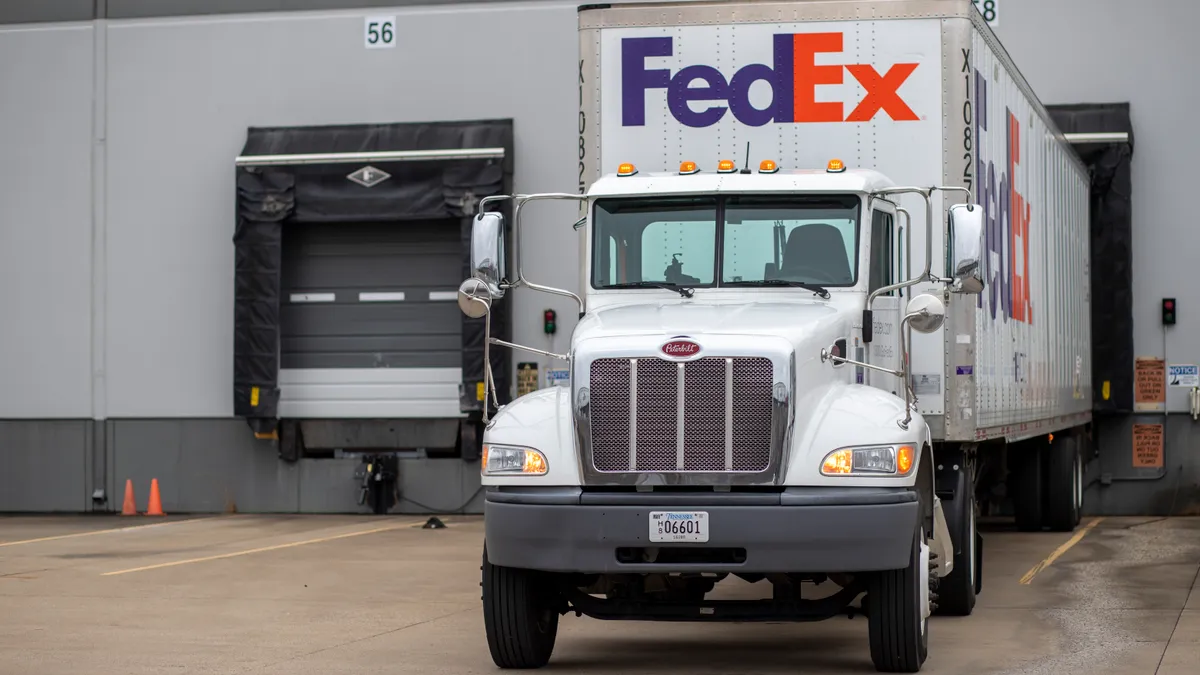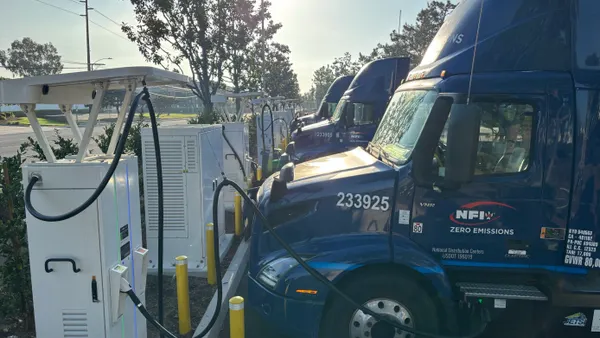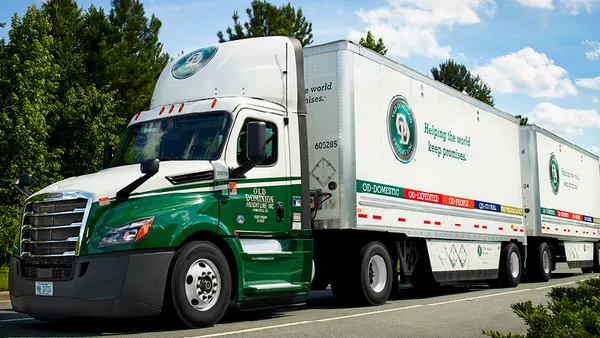Dive Brief:
- Uber Freight will let carriers book regular loads on more than 1,000 lanes, giving small trucking firms access to dedicated routes and load planning three months in advance, according to an announcement Thursday. The feature is open to carriers of all sizes.
- The dedicated lanes feature will be available via web portal "over the coming weeks," Uber said, and available on the Uber Freight app "soon after." In a LinkedIn post, Bill Driegert, Uber Freight's co-founder and head of operations, described the feature as "self-serve short term contracts for [owner-] operators and small carriers."
- "This feature rollout is the result of carrier feedback, and is especially timely given recent market fluctuations resulting from COVID-19. Both shippers and carriers are looking for consistency," an Uber Freight spokesperson said in a statement emailed to Transport Dive.
Dive Insight:
Hours spent booking individual loads "often results in inconsistent earnings," according to Uber Freight — especially when the market swings as dramatically as it has in 2020. Brokers, including one of Uber Freight's main competitors, Convoy, have recently addressed this need for consistency.
In July, Convoy announced it would allow carriers to bid on dedicated freight contracts lasting up to six months, including up to 40 live and drop loads per week, on the company's mobile app.
"Historically, dedicated freight has been reserved for large or medium-size carriers because of the inaccurate perception that small carriers are less reliable," Convoy said in a news release last month. "Now, every owner-operator and small fleet has access to steady and stable work."
During the economic downturn, contracts signed before the pandemic shielded some large carriers from taking on significant financial losses when volumes dropped at the end of March through May. For small fleets that relied on the spot market during the market's most volatile stretch, the choice was often between parking trucks and deadheading.
"You're probably going to be deadheading a lot and running up your costs. But you're still going to take that load right now, because it's better than not hauling anything," Jason Miller, associate professor of logistics at Michigan State University, said in May.
Uber Freight also took aim at deadheading with its load-bundling feature. An Uber study found that its algorithm decreased deadhead by about 17.3 miles per round-trip, representing a 22.6% decrease in empty miles when compared with organic bundles.
The broker's latest feature continues its strategy of giving carriers more access to more loads at one time. Carriers can search through more than 1,000 dedicated lanes and enter preferences for volume and day of the week. After doing so, carriers will automatically receive tenders for the length of the commitment, according to the broker.
Having dedicated lanes gives small carriers, in particular, the chance for familiar loads with a fixed income "in an uncertain time," the Uber Freight spokesperson said.
But the spot market is in carriers' favor right now. According to DAT, posted loads increased 9% while truck posts were up 2%, on a week-over-week basis, pushing national average prices to their highest level since July 2018. Part of the uptick in volume correlated with preparation for Hurricane Laura in the Gulf Coast, but spot van rates were also up in Chicago; Memphis, Tennessee; Los Angeles; and Columbus, Ohio; DAT reported. Overall, spot rates are up 10% over last year.
Rates typically fall throughout the summer until the holidays. "I think [spot rates are] likely to moderate," Avery Vise, VP of trucking research at FTR, recently told Transport Dive sister publication Supply Chain Dive. "But it quite possibly will still hold much higher than certainly we thought it would just a couple of months ago."
Even if the spot market is up, short-term dedicated contracts guarantee business if the market swings low again. And, especially heading into peak season, secure capacity and pricing is appealing to shippers as well as carriers.











